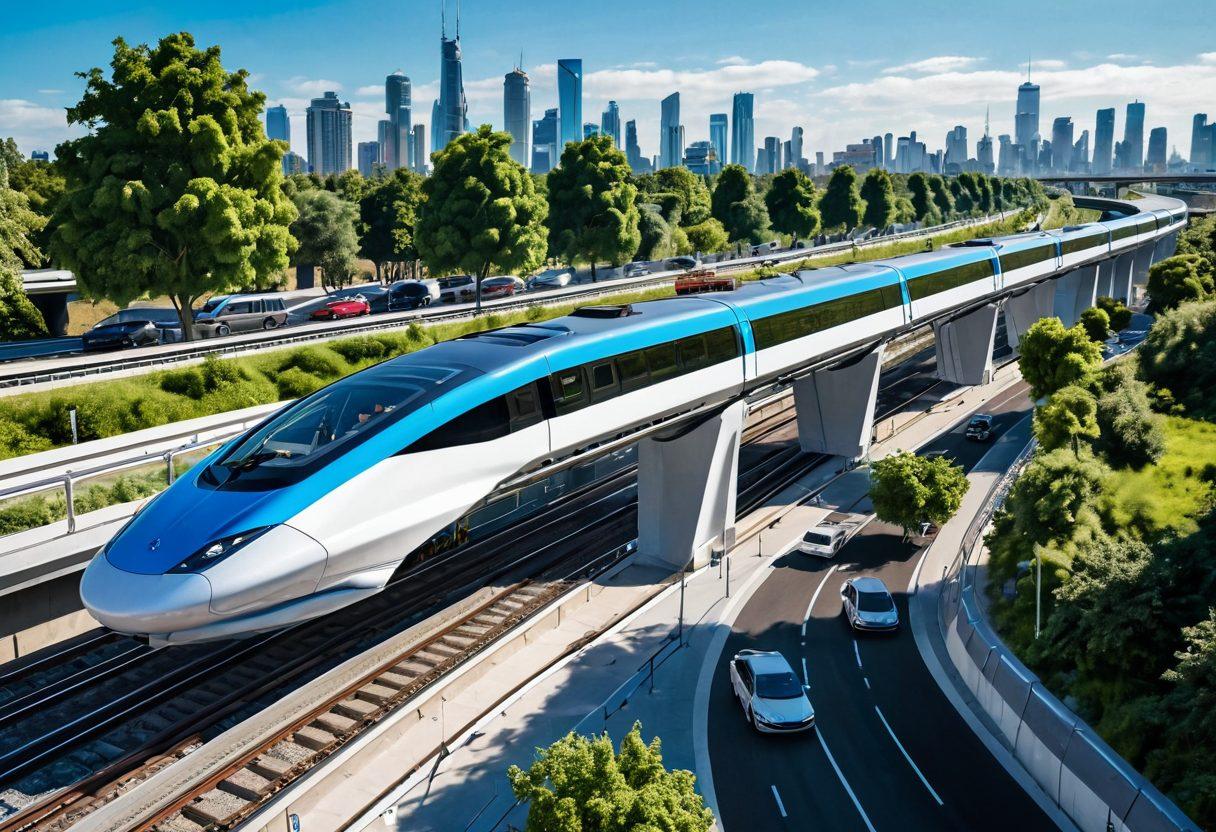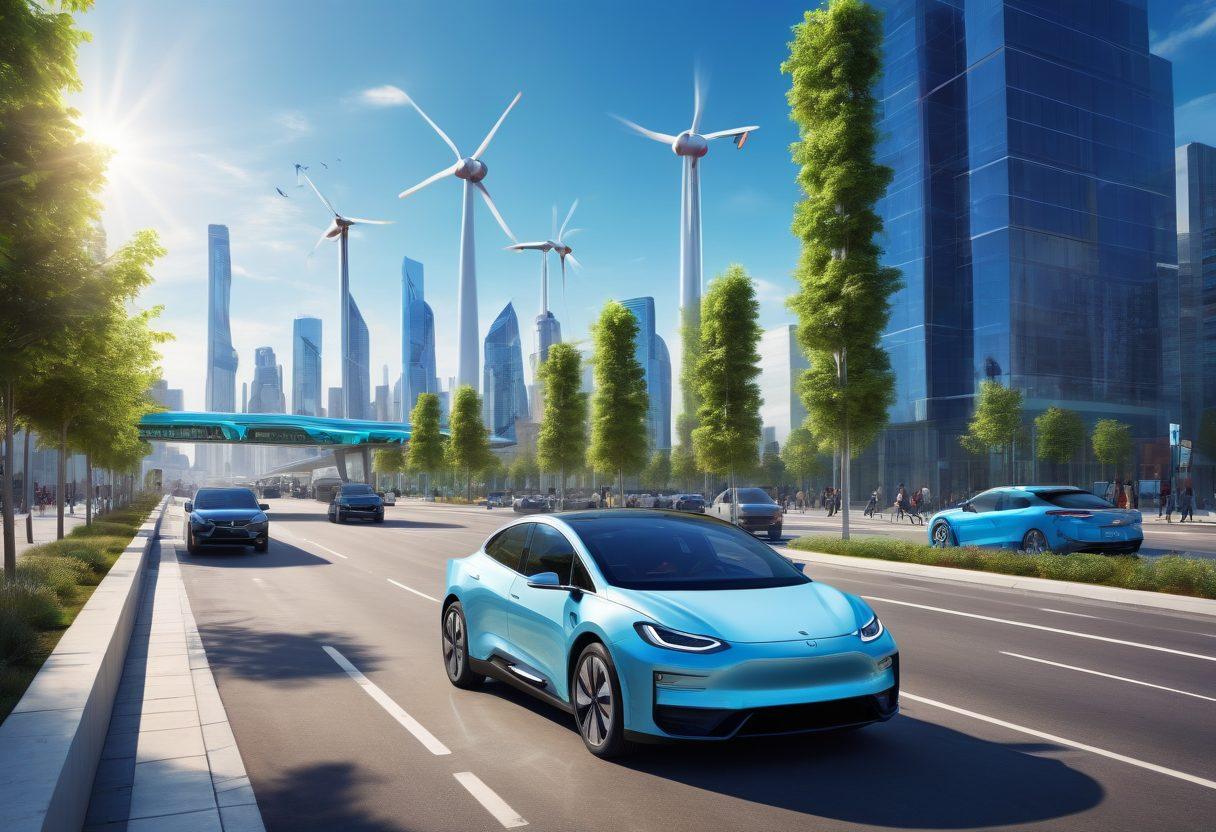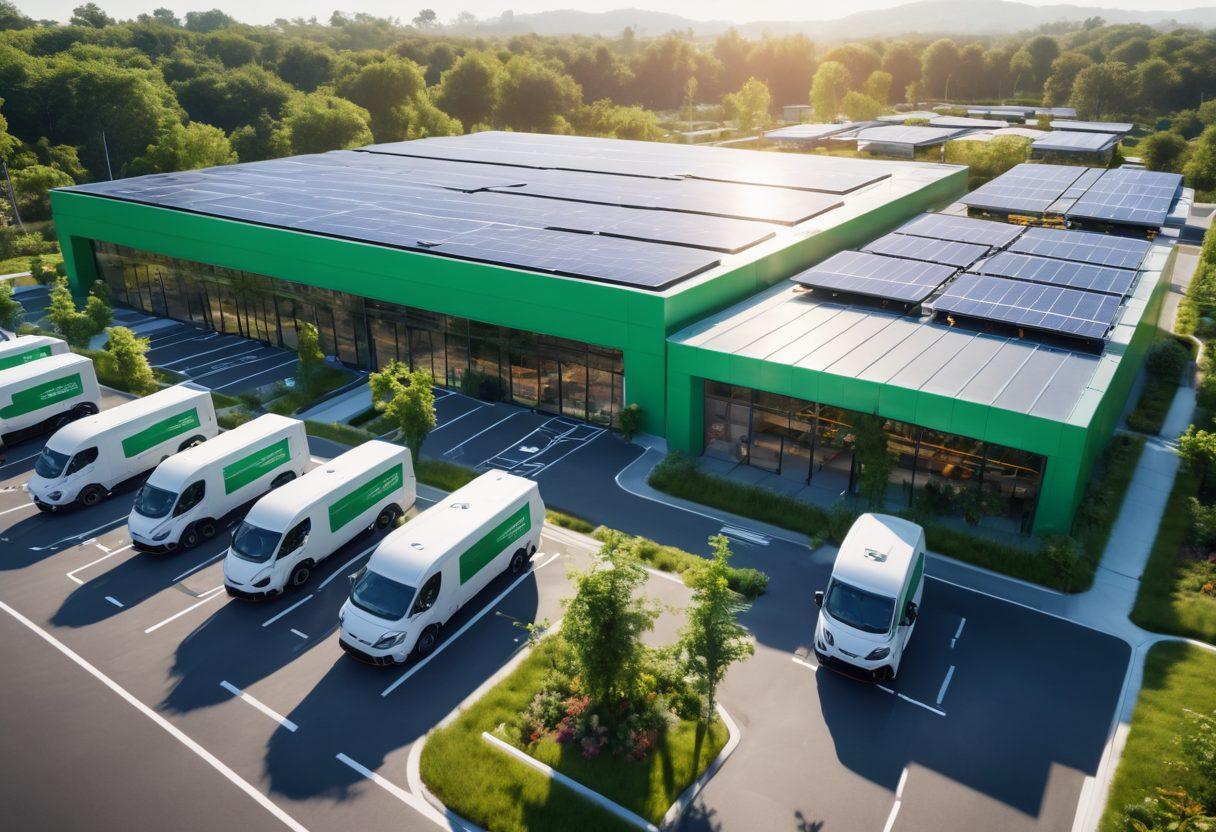Revving Up Sustainability: The Future of Rapid and Efficient Transportation Solutions
In today's fast-paced world, speed and efficiency are more important than ever before, especially when it comes to transportation. Imagine a future where every vehicle on the road is not just a means to get from point A to point B, but also a powerful tool for sustainability. This vision is not as distant as it seems. Innovative transportation solutions are emerging as the propellant for change in an industry that has traditionally relied on gasoline and diesel. And it starts with reimagining how we think about our cars and vehicles – not just as modes of transport but as integral components of a sustainable future. How can we accelerate sustainability through innovation, you might ask? Let's explore this exciting frontier together.
The automotive landscape is shifting dramatically, and with it, so is our perception of speed. Rapid advancements in electric and alternative fuel vehicles are redefining the meaning of 'quick' and 'efficient'. Picture this: fleet services are no longer just about managing gasoline-powered cars; they're transforming to embrace renewable energy options like electric vehicles (EVs), hydrogen fuel cells, and hybrid systems. This transition isn’t just an upgrade in vehicles – it's about fueling solutions that reduce our reliance on fossil fuels while maintaining the logistics needed for swift delivery of goods and services. As electric vehicles continue to gain traction, we must consider how these speedy innovations can expedite our journey toward sustainability.
Interestingly, in the car ecosystem, maintaining these vehicles also plays an essential role in driving environmental changes. Efficient vehicle maintenance strategies are evolving to complement the rapid technological advancements in the automotive sector. From smarter fuel management systems to environmentally friendly automotive services, each improvement is a step closer to a more sustainable future. This blend of cutting-edge technology with everyday logistical needs can often spark a question: how well are we preparing our fleets for the energy transition? Ensuring our vehicles are equipped with the latest innovations and proper maintenance practices will enhance efficiency and sustainability.
Moreover, the emergence of logistics powered by renewable energy highlights the importance of integrating sustainability into everyday transportation solutions. The synergy between energy services and green vehicle technologies allows us to explore opportunities that were previously considered unattainable. Think about the effect of transitioning a delivery fleet from traditional diesel to electric – not only does this dramatically reduce greenhouse gas emissions, but it also elevates the brand to be more in line with consumer values around sustainability. As someone deeply invested in environmental issues, wouldn't you agree that it's time we recognized and seized these changes?
Ultimately, the intersection of rapid transportation advancements and commitment to sustainability is more than just an idea. It's a call-to-action for businesses and consumers alike. The future is electric, and quick, efficient solutions like electric vehicles, renewable energy sources, and innovative fleet management practices are laying the groundwork for a cleaner tomorrow. So, as you navigate your day-to-day, consider how your choices in transport can contribute to a larger movement. As we embrace these radical yet effective transportation solutions, we’re not just driving—we’re leading the way toward a sustainable future. The road ahead is bright, and it's paved with the promise of innovation. Are you ready to accelerate alongside it?
From Electric Cars to Alternative Fuels: The Race Towards Efficient Transport
In an age where time is money, the demand for rapid and efficient transportation solutions has surged to unprecedented levels. With urban centers bustling and the global economy reliant on logistics, there has never been a more urgent need for innovations in how we move people and goods. Enter the race towards more environmentally sustainable options: electric cars, alternative fuels, and cutting-edge automotive services. As we navigate this dynamic landscape, the question remains: What does the future hold for our beloved vehicles?
The shift from traditional gasoline and diesel-powered vehicles to those fueled by renewable energy marks a significant turning point in history. Imagine zipping through city streets in a sleek electric car or a vehicle fueled by eco-friendly hydrogen instead of pesky fossil fuels. This transformation isn't just about fueling solutions; it’s about creating a world where our transportation options are environmentally friendly, further driving the narrative of sustainability. But how do we expedite this shift towards greener mobility?
When it comes to driving towards the future of transportation, the key lies in collaboration among industries. Automotive manufacturers are partnering with energy services and infrastructure providers to build networks of electric charging stations and refueling services for alternative fuels. This rapid rise in accessibility not only empowers consumers to make choices aligned with sustainable practices, but it also positions renewable energy as a viable power source. As we embrace these changes, one can't help but ponder a future where rapid logistics and sustainability coexist seamlessly.
Yet, amidst this exciting evolution, questions linger: Will electric cars dominate the roads by 2030? How will businesses adapt their fleet services to meet the demands of this new era? Will individuals sacrifice speed and convenience as we shift towards alternative fuels? These inquiries are not just for the engineers and visionaries; they are at the heart of everyday conversations. As the public becomes more aware, their will to drive change plays a crucial role in shaping the transportation solutions of tomorrow.
As consumers, we are on the cusp of making impactful choices, from the vehicles we drive to the fuel management strategies we adopt. With options like hybrid models and fully electric cars gaining popularity, every decision contributes to a cleaner, greener future. Engaging in environmentally friendly practices, being proactive about vehicle maintenance, and opting for energy-efficient automobiles can expedite our collective journey towards sustainable transport. After all, every mile counts, and each trip can contribute to the larger narrative of sustainability we all wish to hear.
Transforming Logistics: The Power of Rapid and Sustainable Automotive Services
In a world that's constantly on the move, the need for rapid and efficient transportation solutions has never been more crucial. Have you ever found yourself in a situation where you wished your delivery had arrived an hour earlier? Today, logistics play a vital role in our lives, dictating how quickly we receive goods and services. As we witness the rise of sustainability, the automotive industry is emerging from the shadows of traditional fuel sources, reimagining how we move people and products. This pivotal transformation in logistics isn’t just a trend – it's an essential step towards a greener future, driven by the power of rapid and sustainable automotive services.
Imagine pulling up to a bustling warehouse filled with cars, but instead of the typical gasoline and diesel vehicles, you're greeted by electric and alternative fuel vehicles, humming quietly as they prepare for their next journey. These are not just any automobiles; they are the embodiment of sustainability, using renewable energy to reduce emissions and expedite delivery. With speed as the name of the game, transportation solutions are being redefined. Today, companies harness electric vehicles to enhance their fleet services, offering quick and efficient logistics solutions that not only get the job done but also care for our planet.
The question arises – how can businesses leverage the power of electric vehicles to optimize logistics? It’s simple: by adopting energy services that focus on efficiency and sustainability, they can streamline operations to deliver products at lightning speed. Fleet services now utilize improved fuel management strategies, ensuring that every vehicle is running at optimal performance. According to a report by the International Council on Clean Transportation, electric vehicles not only reduce fuel costs but also significantly cut greenhouse gas emissions. This shift towards automotive services powered by renewable energy serves as both a propellant for innovation and a beacon of hope for environmental advocates.
But it doesn't stop there. The automotive industry continues to evolve, and so do consumers' expectations for environmentally friendly options. This shift calls for rapid advancements in vehicle maintenance, with an increased focus on sustaining the longevity of electric vehicles. Businesses must stay ahead of the curve by where they place their investments—be it in training maintenance teams on cutting-edge technologies or employing smarter logistics systems. By embracing these solutions, companies can maintain a competitive edge while fostering a more sustainable future for transportation.
In conclusion, the transformation of logistics through rapid and sustainable automotive services reflects a broader commitment to sustainability. With every electric car on the road and every fleet service optimizing its fuel management, we are taking tangible steps toward a cleaner planet. The future of transportation solutions is bright, promising an era where expediency and environmental responsibility go hand in hand. So the next time you zip past an electric vehicle or receive a speedy delivery, remember that this is just the beginning of a remarkable journey towards a sustainable, rapid, and efficient world of transportation. Let's drive the change together!


